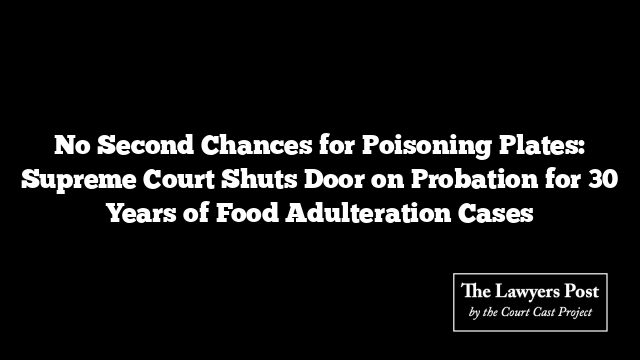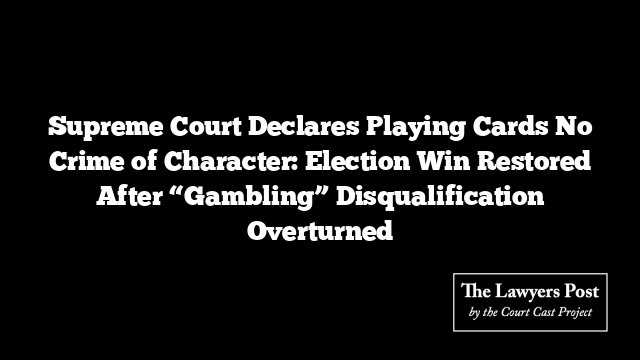In a firm verdict with implications stretching across three decades, the Supreme Court has drawn a hard line through one of India’s murkiest legal gray areas: whether those convicted under the old Prevention of Food Adulteration Act (PoFA) between 1976 and 2006 can be granted leniency under probation laws. The answer? A resolute no.
Ruling on a case involving convicts who had sought the benefit of the Probation of Offenders Act, the bench declared that Section 20AA of the PoFA—inserted in 1976—absolutely bars such relief, even if the law was later replaced by the more modern Food Safety and Standards Act (FSS Act) in 2006. The key point: the window between 1976 and 2006 remains sealed shut for probationary mercy.
“The benefit that the Probation Act envisages is inapplicable to an offence committed under the PoFA Act, if the offence has been committed between introduction of Section 20AA in 1976 and its repeal in 2006 by the FSS Act,” the Court declared, signaling a sharp break from reform-friendly interpretations of law.
The appellants had urged the Court to consider a shift in legislative attitude—pointing out that the FSS Act doesn’t carry a similar bar on probation, and arguing that Article 20(1) of the Constitution, which protects against harsher retroactive penalties, should let them claim the FSS Act’s softer stance. But the judges weren’t convinced.
The government’s rebuttal was precise: Section 20AA made the denial of probation crystal clear, and Section 97 of the FSS Act—a savings clause—ensures that the consequences of the repealed PoFA still apply for crimes committed while it was in force.
The verdict, penned by Justice Dipankar Datta, carved a legal distinction with earlier precedents. In the 1983 case T. Barai v. Henry Ah Hoe, the Court had allowed retrospective application of lighter penalties because there was no savings clause. But here, the presence of such a clause in the FSS Act made all the difference. Referencing Basheer v. State of Kerala (2004), the Court emphasized that a clear savings provision acts as a legal firewall against retroactive leniency.
At the heart of the decision lies a deeper judicial philosophy: public health trumps reformative mercy. The Court underscored that food adulteration—endangering lives in quiet, invisible ways—warrants a zero-tolerance approach. Reform, it seems, ends where the threat to public welfare begins.





